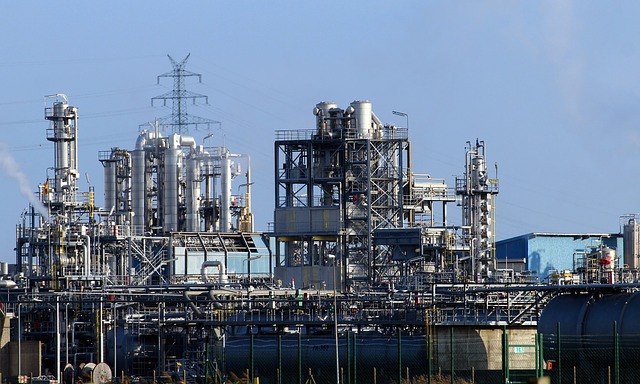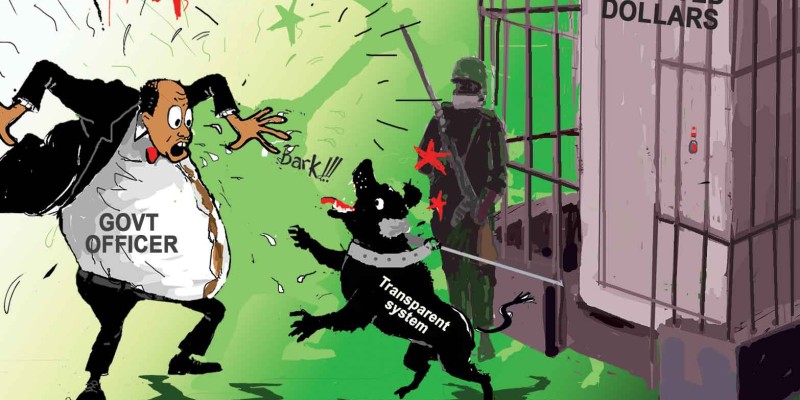Font size:
Print
PRIVATE REFINERIES? NO WAY! UNTIL …
BY: LLES LEBA (Email: llesleba@hotmail.com)
Weblink: http://groups.msn.com/RATIONALPERSPECTIVES
It is no secret that in spite of the reality of our premium ranking in the league of world producers of crude oil, the four government-owned refineries located in Warri, Kaduna and the two in Port Harcourt produce at best less than a third of total national requirement for petrol products; the balance 70% of our domestic consumption requirement has always been imported in the last 25 years. The fallout of this supply framework should be obvious even to a simple minded business person! Needless to say, the export of crude oil and subsequent re-import of our shortfall of refined petroleum products implies the incidence of unnecessary to and fro shipment costs for crude oil and refined petroleum products respectively. In other words, imported petrol would normally be expected to add between 10-15% to pump prices of fuel locally.
In the absence of free access to information on how much we spend on imported fuel annually, we will accept the claims of a government annual subsidy of over N30bn on our consumption of fuel products; this would imply that total consumption of petroleum products will exceed N300bn, (i.e. If the subsidy is 10% of total imports; however, rising international crude oil prices now over $50/barrel would most certainly have since pushed the subsidy level to upwards of 20%!!)
Thus, if all our domestic fuel requirements are refined locally, we would save over N30bn from the shipment component of our cost template annually. In this manner, the nation would have had available over N300bn (over $2bn) to spend on the improvement of infrastructure and for improving the lot of our people in the areas of health, education and transportation, etc.
In addition, the economy would have benefited from the domestic exploitation or the processing for export of the bye-products of the crude oil refinery process! It may not be unrealistic to expect a net income of another sum of $2bn from this source in the last 10 years. Our educational and health institutions would have been dramatically positively transformed with such outlay if properly utilized and our agricultural base would have been appropriately consolidated!
Our inability to meet domestic demands from our local refineries has also foreclosed the opportunity for earning additional revenue from the export of surplus petroleum products to the West African market and indeed to other markets in Africa and Europe. As things are, we would have paid out money to refineries in these regions rather than earn income and precious foreign exchange from these same countries, most of whom do not have domestic reserves of crude oil but have surplus refinery capacities!
Every concerned Nigerian will be alarmed at the wasted opportunities and the inherent cost of our negligence. We would expect that the glaring opportunities for commercial profit would have attracted keen private investors, even if the bureaucracy and impersonal nature of government blinded officialdom from these easy pickings in our national resource endowment.
Indeed, there is no doubt that private investors recognise the gold mine of opportunities in the establishment of local refineries to meet both the captive domestic shortfall in local supply and the ample opportunities for export. As at the last count, at least 18 private applications for the establishment of refineries in various locations in Nigeria have been approved by the federal government. There have also been several expressions of interest from different parts of the globe; lately, China has also joined the band. What is, however, surprising is that almost two years after the approval of licenses to 18 investors, there is currently no evidence of any serious commitment to construction on any of the designated sites! In other words, Nigerians will have to continue to largely depend on, and pay more for imported fuel products for the immediate foreseeable future as we are informed that a reasonable size refinery with a daily capacity of 1,000,000 litres would take between 2-3 years to commission from foundation! Nigerians will still have to live with the vagaries and the erratic supply that characterize the importation process for refined fuel products for some time to come. We would continue to pay out scarce dollar revenue when our reserves should have been supplemented from surplus export earnings from our refineries! The question then is “why is it that private investors who eagerly applied to build refineries are still pussyfooting about the location sites without any real commitments on the ground, especially with the attractive prospect of a captive domestic market and potential for excellent profitability as well as steady export earnings?
The reason for the foot dragging of the private investors despite the potentially lucrative prospects of local refinery projects is not far detached! The truth is that the project is an attractive investment so long as investors can operate in an unfettered environment that does not include price control! The federal government announced the deregulation of the downstream sector of the petroleum industry almost two years ago. Thus, oil marketers were expected to join forces with the NNPC and import fuel themselves for sale locally. It was expected that each importer would add a reasonable margin to the landed cost of their imports to ensure sustained profitability. Fortuitously, soon after the official adoption of deregulation, crude oil prices shot up and have continued to be on the rise since then. I say fortuitously, because the record level international crude oil prices should have wiped the tears from our eyes as a nation as our export revenue from crude oil automatically doubled for the export of the same volume of crude oil at no extra cost; a scenario that every business concern prays for but few are so blessed! Indeed, the large increase in our current external reserve to its current highest ever level of over $20bn, would have been expected, all things being equal, to improve the naira value and thus bring about cheaper petrol prices domestically! But my dear reader, this has not been the case; in fact the reverse expectation is our reality! Our naira value has remained resistant to the dollar at about N132-133=$ despite the doubling of our national reserves of dollars! Meanwhile, the same dollar has lost over 20% against the Euro and pound sterling, the currencies of our major creditors.
Not only that, the almost 100% increase in the international price of crude oil means a commensurate rise in the domestic pump price of fuel; for example, when local fuel sold for say N30/litre, (about US25 cents) the feed stock, which is crude oil sold for less than $30/barrel. When, however, crude oil prices approach $60/barrel, pump price of fuel would be expected to rise in sympathy to about 45 cents which would convert to over N60/litre at the current rate of N133=$. However, political and welfare considerations make it impossible for government to endorse such a high pump price for now. In this event, a subsidy becomes inevitable! Indeed, the total value of subsidy would continue to increase with increasing crude oil prices. This then is the kernel of the dilemma for potential private investors in local refinery projects! In the event that they cannot formally charge a market determined price for their output domestically, the shine is immediately taken off the lucrative potential of the investment. It is understandable that private investors may not want to count on government for a prompt refund schedule of incurred price subsidies if they committed themselves to the project. By the same token major oil marketers have not been motivated to import fuel products for sale locally in view of the unfavourably lopsided disparity of their cost template against government controlled pump prices.
Readers may wonder at this juncture at all the fuss and fanfare that heralded governments adoption of the policy of deregulation of the downstream sector over 18 months ago! The reality is that the government now finds itself in the predicament of wanting higher crude oil prices for reason of its healthy and immediate contribution to our dollar reserves, but the government is then boxed into a corner by the resultant higher domestic pump price of fuel when the dollar price of refined fuel is converted to naira at a resistant rate of exchange to the dollar i.e. N132-N133=$!
Indeed, in a liberalised foreign exchange market, the implication of a 100% increase in our foreign exchange reserve and the present reality of a rising crude oil market, the rate of the naira would be expected to be consolidated to about N50-N60=$. In this event, we would have swelling foreign reserves, but our stronger naira would mean that local pump price of fuel would fall by anything up to about 50% i.e. from N30/litre about 18 months ago to about N15/litre at the current international price of crude oil.
In this framework, the ambivalence of the government towards increased crude oil prices will vamoose! The downstream sector of the oil industry will be truly deregulated as there would be no hesitation on the part of private investors to establish their refineries pronto since the prices of their outputs will be appropriately determined by their production costs without dependence on government for refund of price subsidies. Major oil marketers would similarly be willing to commit themselves to own import of petroleum products! The market will quickly approach equilibrium and we will all reap the erstwhile elusive dividends of deregulation!
Until the above framework is recognised and adopted, any new refinery built under the current arrangement can only be commercially feasible if its products are exclusively dedicated to export markets! A scenario that would be politically impossible to defend!
SAVE THE NAIRA, SAVE NIGERIA!
PS/ Copies of the earlier articles of ‘Rational Perspectives’ are available on the internet on this link: http://groups.msn.com/RATIONALPERSPECTIVES which you can access by registering as a member. Registration is free. You may also use this medium to publish your views on the Nigerian economy.









